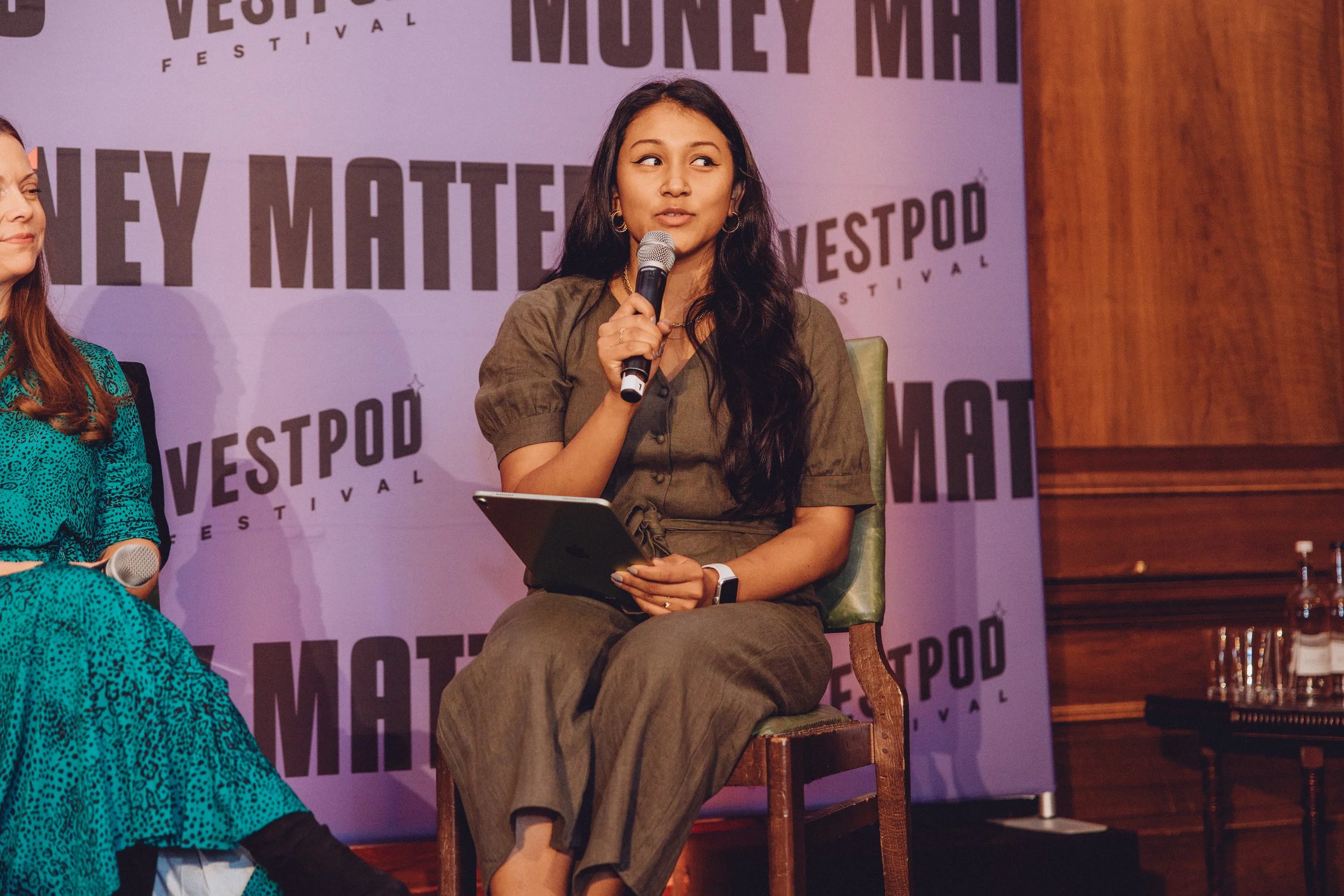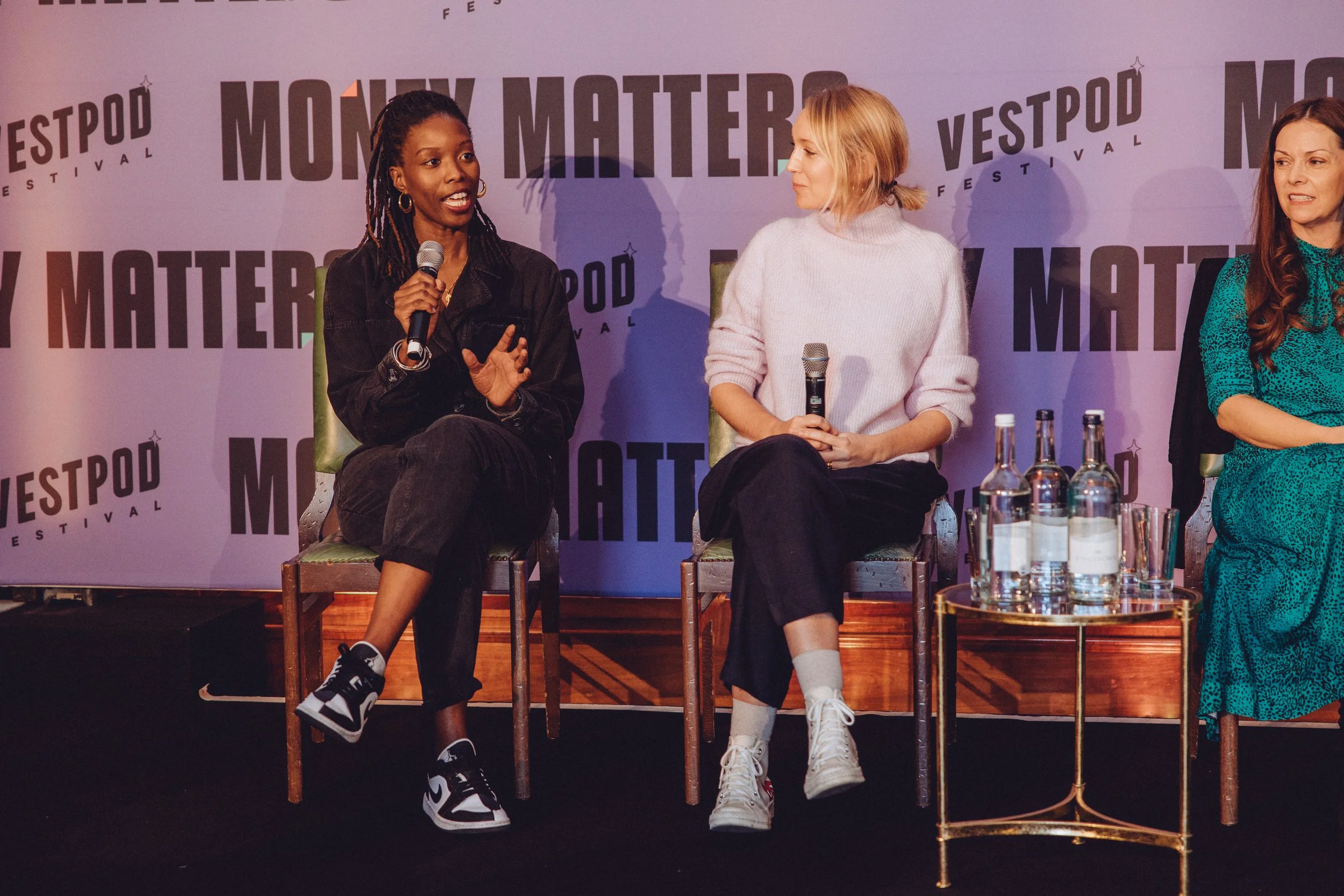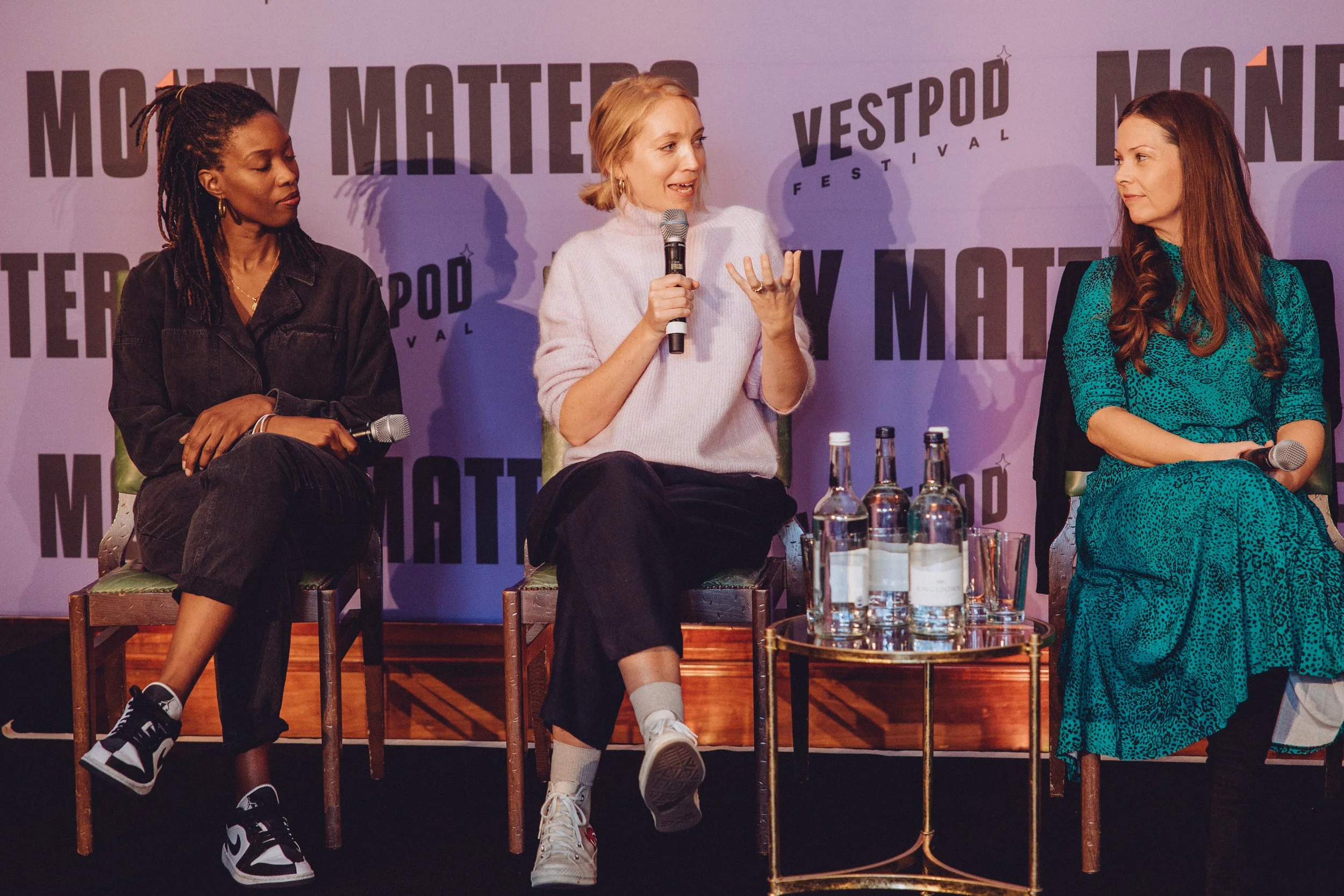Money Matters Festival: What Does Money Mean to You?
💸 Our relationship with money is emotional. It can trigger a range of emotions, from fear, and excitement to guilt or shame. In this talk, we will explore how we can see money as a tool, build a purpose and make our way towards financial independence.
Listening to lived experiences and powerful stories will help you debunk your own money mindset.
*This is the recording of Money Matters Festival held on Oct 9th, 2022 at The NED in London.*
Speakers:
Money Matters Festival: What Does Money Mean to You?
Nina Mohanty: Founder and CEO of Bloom Money
Davinia Tomlinson: Founder of rainchq
Amy Spiller: Chartered Financial Planner at Barclays
Laura Whateley: Award-winning journalist, personal finances expert and Author MONEY a user's guide
Our emotions around money
Everyone has their distinctive money memories from childhood - often, these shape our attitudes toward money in adult life. The panellists all have their own unique memories, from shiny pound coins to grandparents talking about money. It’s important to recognise these, as they often provide a clue to our behaviours and attitudes around money today.
We have big emotions about money for different reasons - firstly, at the moment we’re in a huge cost of living crisis, which can induce a lot of anxiety for people. Of course, the people who are most worried about money right now are those on lower incomes, however even those who earn a decent salary can still have complicated emotions.
We associate success with financial competence and because we tend to think people who have got lots of money are financially competent, you can end up thinking that if you don’t have much or are struggling, that it’s all your fault. It is common to feel a lot of guilt or shame around our salaries.
Then there is the secrecy which comes with the shame. We don't talk about how much debt we might have or how someone's bought a house, or what our parent’s financial situation is. This makes us assume that other people have it together and don’t make any mistakes — which is false. We all trip up, so don’t be afraid of talking about your struggles.
It’s helpful to remind yourself of YMMV - which stands for “your mileage may (or might) vary.” This acronym is frequently used to refer to the differences between people’s experiences. It’s an important phrase to remember because we're all so different, and we all have different backgrounds.
Women also tend to tie their financial planning to milestones in life, such as taking a career break or starting a business. That’s why opening up the conversation about money is so important — most of us have had mishaps and struggles, and only by talking about them do we feel better
All of these life stages and these milestones impact us emotionally and therefore have their financial implications, too.
“Money is power. Money is emotional. Money is play. Money is freedom. Money is so many things to so many people. There was a time in my life when money was anxiety-inducing. I would break out into hives thinking about the credit card debt I’d accumulated. It felt completely unsurmountable." - Nina Mohanty
"If you’re trying to keep up with the Joneses, it’s a self-perpetuating fallacy. We all know Instagram is not reality. It’s really important to think about what you as an individual are inspiring to." - Amy Spiller
Money conversations and your money personality
When it comes to your money personality, there are two schools of thought. There is a very academic one, which is around money scripts. These were devised by Stanford academics based on behavioural finance. These scripts stem from our childhood, and they are ascribed to certain behaviours that we might exhibit and certain values that we might have around money. The four main personalities are money avoidance, money worship, money vigilance and money status.
You can find out your money personality by taking a quiz online, however it's really important that we don't box ourselves in. Knowing our money personality can help guide us around some of the things we might like to do differently, things we might want to do more of, but we shouldn't feel wedded to any of these personalities.
Money and relationships are an important factor to consider, too. Learning to have money conversations with your partner and understanding how you will deal with things like divorce, having a child, blending your finances, while also retaining independence and having your own money.
It’s also important that we open up the conversation about where our money has come from and financial privilege, so that our friends and people around us don’t end up having a sense of misplaced shame.
“Ladies, if you’re struggling, fantasise. Envision the life you want, then work backwards and figure out what financial steps you need to take to make that possible” - Davinia Tomlinson
“It’s really important to bear in mind when we think about money, and how we manage it, that we’re human. If you feel like you’re messing up, remember we’re all messing up” - Laura Whateley
Beware of comparisons
We live in a world where, we see it, we want it, we get it. Instagram makes us tiptoe a certain line of envy, where we see what other people have (because of course, Instagram is mostly about the facade) and perhaps this may lead us to overspend.
Over half of millennials admitted to having booked a trip or bought an item off the back of a celebrity or an influencer endorsing it on social media.
If you're sort of trying to keep up with the Joneses and the Joneses aren't you, and the Joneses have different aspirations to you, then it's a sort of self-perpetuating fallacy.
If you find yourself in a position of scrolling, and you've got something in your basket, or you've got a number of things in your basket, don't press check out that night. Just wait until the next morning and think, do I really need that? And if the answer is yes, then fine, if you can afford it, go for it.
There is also the rule of three, which is to divide your monthly after-tax income into three spending categories: 50% for needs, 30% for wants and 20% for savings or paying off debt.
Remember, money is a tool that enables you to achieve the goals you have in your life. Your goals and your path won’t be the same as someone else’s, so tune out the noise and focus on your values and dreams.
Speakers’ bios:
Nina Mohanty, founder and CEO of Bloom Money, a FinTech company that empowers migrant communities with tools to build generational wealth.
Davinia Tomlinson, founder of rainchq. After 15 years of working in the investment management industry, she created the financial coaching platform in 2018 to help women take control of their financial futures. As well as offering financial coaching, the platform offers guidance via Instagram to help women build sustainable, long-term wealth.
Amy Spiller joined Barclays Wealth Management in 2016 as a Wealth Planner before moving into Training and Competency earlier this year. Prior to joining Barclays she worked at HSBC for almost 16 years, latterly as a Premier Client Manager. Amy is a Chartered Financial Planner and supports new and existing Wealth Planners who provide advice to Barclays Wealth Management clients in the areas of managing and growing their wealth, planning for their retirement and structuring their estates all of which helps them achieve their hopes dreams and ambitions.
Laura Whateley is an award-winning freelance journalist, formerly a reporter for The Times and the newspaper's consumer champion for nearly a decade. She writes about consumer and social affairs, money, housing and travel. Her first book Money: a user's guide, a handbook to personal finance for millennials and Gen Z, was (probably) the first about how to start a pension to go viral on Twitter.





